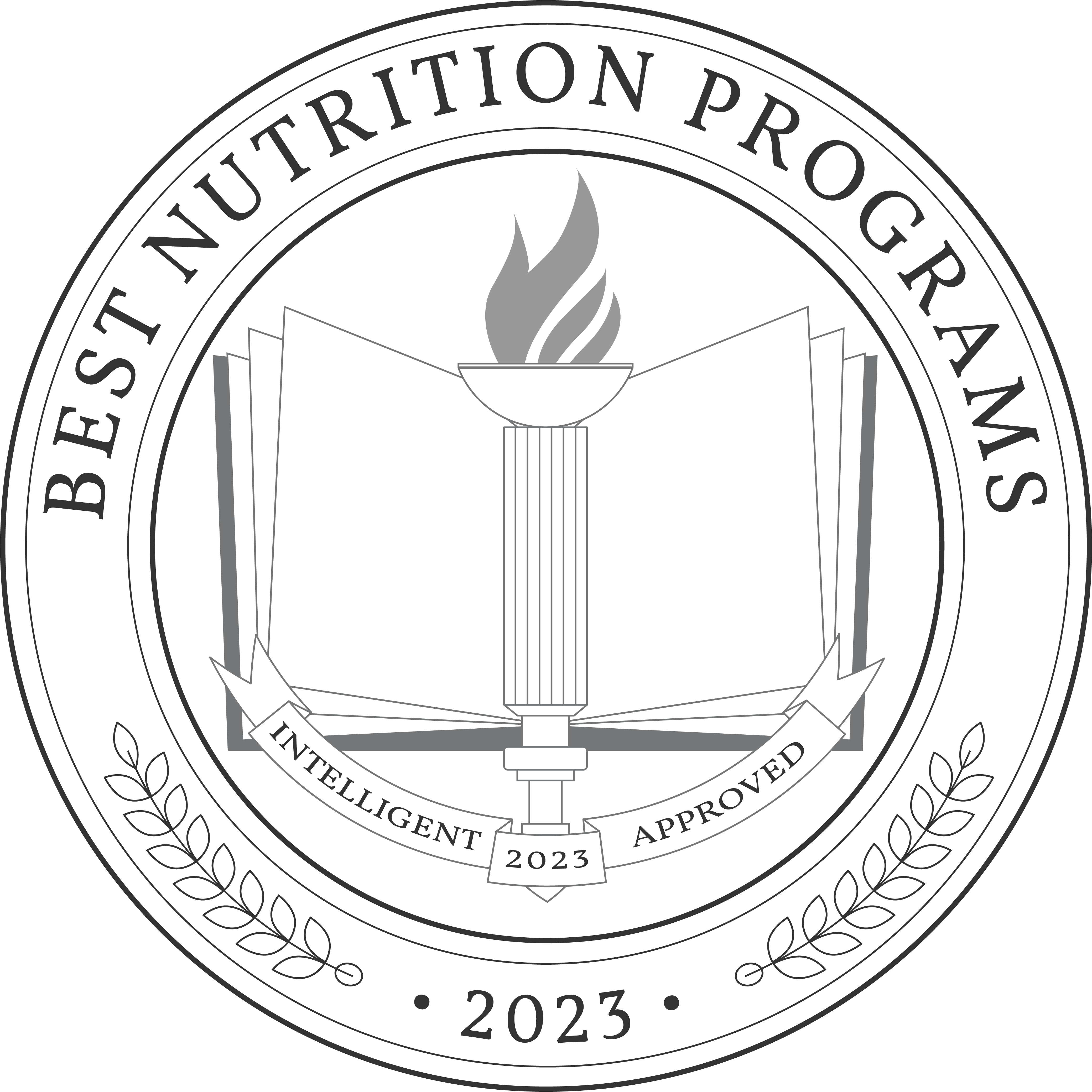Why This Matters
-
NUTRITIONISTS ARE ON THE FRONT LINE OF THE OBESITY EPIDEMIC
With more than half of the American population carrying a Body Mass Index (BMI) above the healthy weight range, nutritionists have never been in greater demand.
-
THE U.S. NEEDS 6,000 MORE NUTRITIONISTS BY 2029
The job outlook for dietitians and nutritionists is rosy: it’s expected to increase by 8%, “much faster than average,” according to the U.S. Bureau of Labor Statistics.
-
EARN $61,000 – $82,000 WITH YOUR DEGREE
Nutritionists with advanced degrees earn a median salary of $82,380 annually, while bachelor’s-level practitioners earn an average of $61,270 a year.
Our Research
This list focuses on programs at both the undergraduate and graduate levels in nutrition, dietetics, and food science. We looked at programs held on campus, online, and via a hybrid of the two formats.
All our chosen programs are accredited by the appropriate organization for that region. This includes agencies such as the Accreditation Council for Education in Nutrition and Dietetics, the Higher Learning Commission, and the Northwest Commission on Colleges and Universities. Accreditation is a rigorous periodic procedure that ensures students are receiving the most up-to-date and relevant curriculum, presented by professors with the terminal degree in their field and appropriate real-world knowledge.
We evaluated each program on the basis of flexibility, faculty, course strength, cost, and reputation. Then we calculated the Intelligent Score for each program on a scale from 0 to 100. For a more extensive explanation, check out Our Ranking Methodology.
- 73 hours to write this article
- 190 universities and colleges we assessed
- 283 education programs we compared
The Top 50 Nutrition Degree Programs

What You Should Know About This Degree
As the healthcare field gains more understanding of the role of nutrition in good health, doors are opening for nutritionists to work in a broader range of settings, such as outpatient care centers, nursing and residential care facilities, and even prisons. Some nutritionists are self-employed, meeting with clients regularly to help them fine-tune their nutritional intake.
There are several specialty areas for nutritionists. Clinical nutritionists create nutritional programs based on the health needs of patients. Some work only with those who have a specific illness, such as diabetes. Community nutritionists develop programs and counsel the public on food-related topics. Management dietitians plan food programs for schools, cafeterias, hospitals, or sports teams. They may be responsible for food budgets and oversight of kitchen staff.
Most nutrition programs in higher education include extensive practical work in the form of internships or other supervised training. This experience may be necessary in your state for licensing.
There are multiple registrations and licensing options available for nutritionists, and each state has its own requirements on what is needed to practice as a nutritionist. Most common are the accreditations from the Commission on Dietetic Registration, which licenses Registered Dietitians (RD) and Registered Dietitian Nutritionists (RDN).
Other certifications are available through the Accreditation Council for Education in Nutrition and Dietetics and the Board for Certification of Nutrition Specialists.
What’s Next?
Here are some questions to ask when researching Nutrition degree programs:
- Am I eligible for this program? To find out if you are eligible for a particular program, check out the school’s website — and don’t hesitate to connect with an admissions counselor if you have questions. In general, for bachelor degree programs, you will need a high school diploma. A master’s degree will require a bachelor’s degree, preferably in a health- or science-related field. The specific requirements for application will vary from school to school, however, so review them carefully before applying.
- Are courses offered synchronously or asynchronously? Online programs usually offer one of two delivery methods. Synchronous classes are held at one specific time, and you attend remotely at that time. Asynchronous courses will be pre-recorded, and you can attend them when it’s convenient for you. The latter option is a good choice if you are working full-time while attending college.
Pay attention to the deadlines that should be listed on your chosen college or university’s website. The deadline for applications may not be the same as deadlines related to financial aid.
Most schools offer financial aid packages to those who have a demonstrated need for support. There may be merit-based scholarships as well. In addition to what your school offers, when looking for financial aid, see if your employer or any relevant professional organizations have scholarships, loans, or grants.